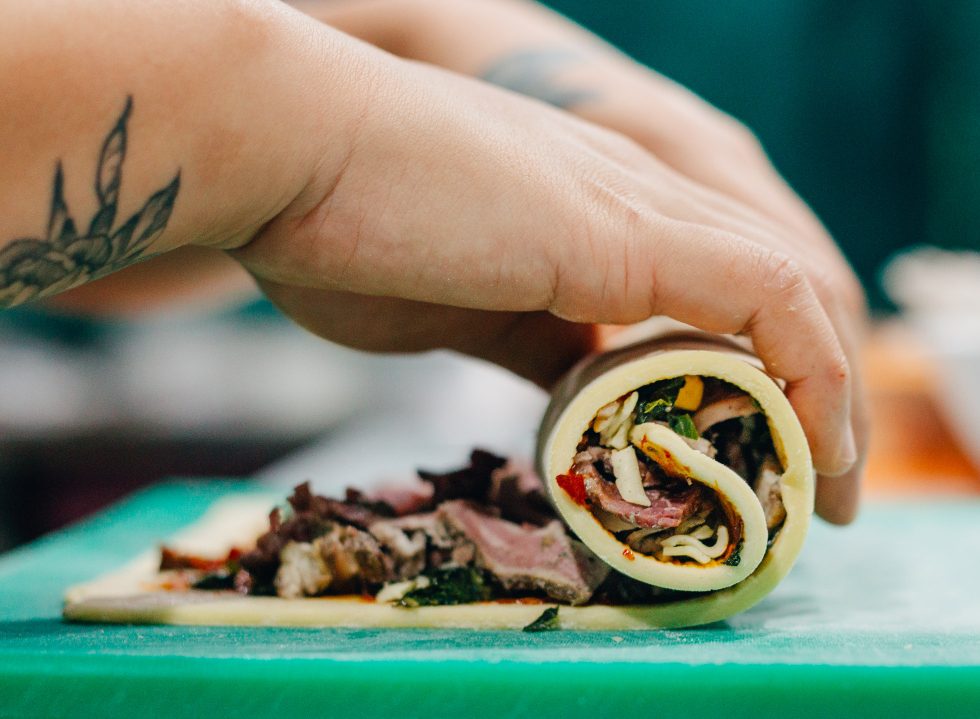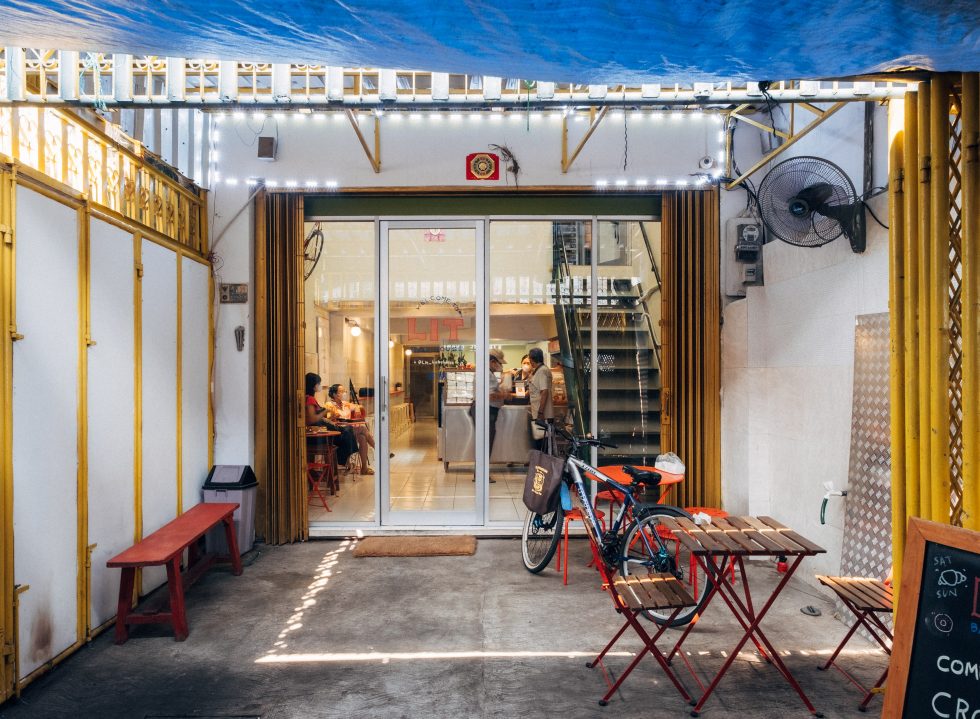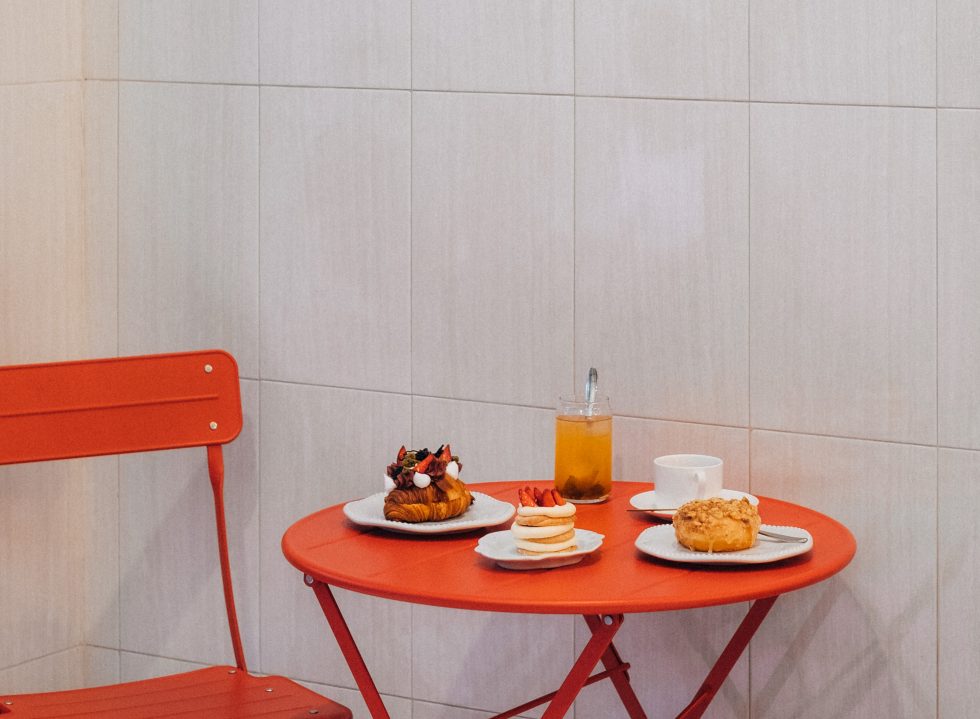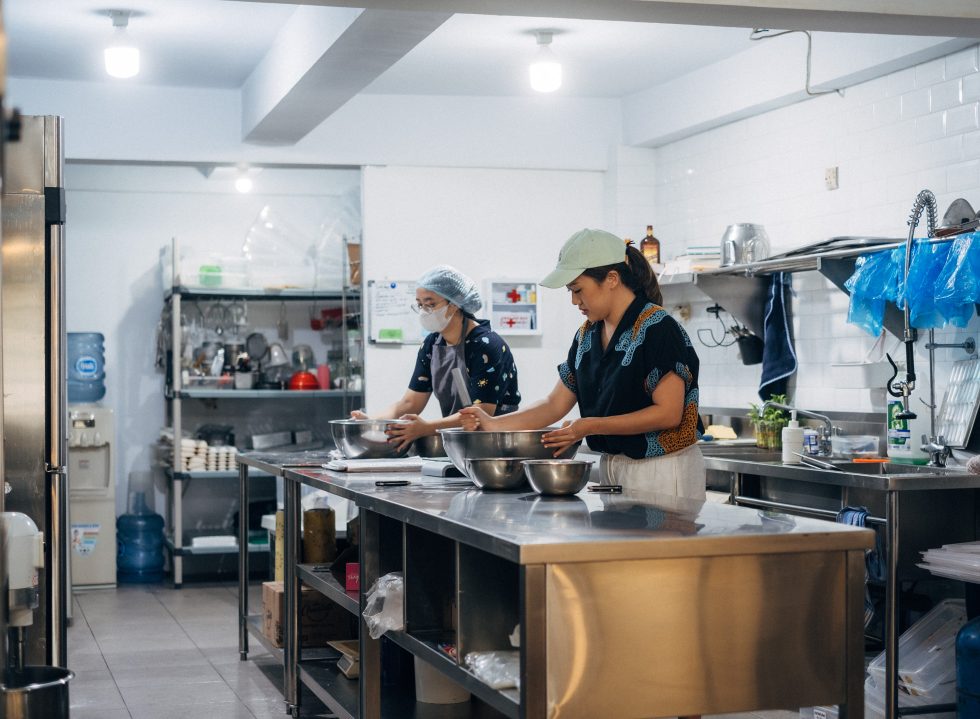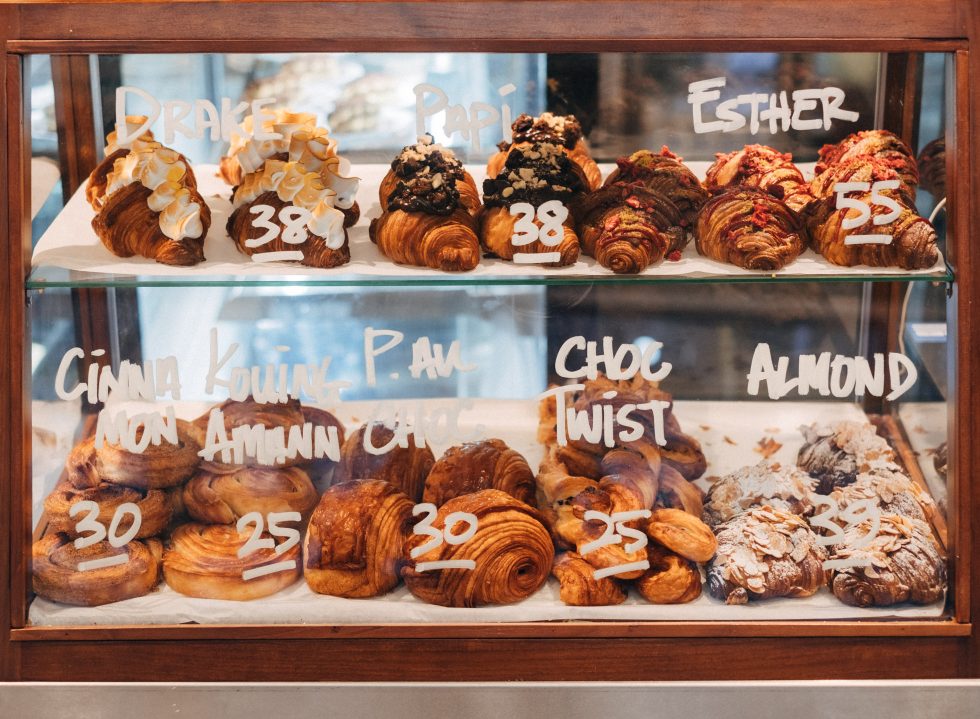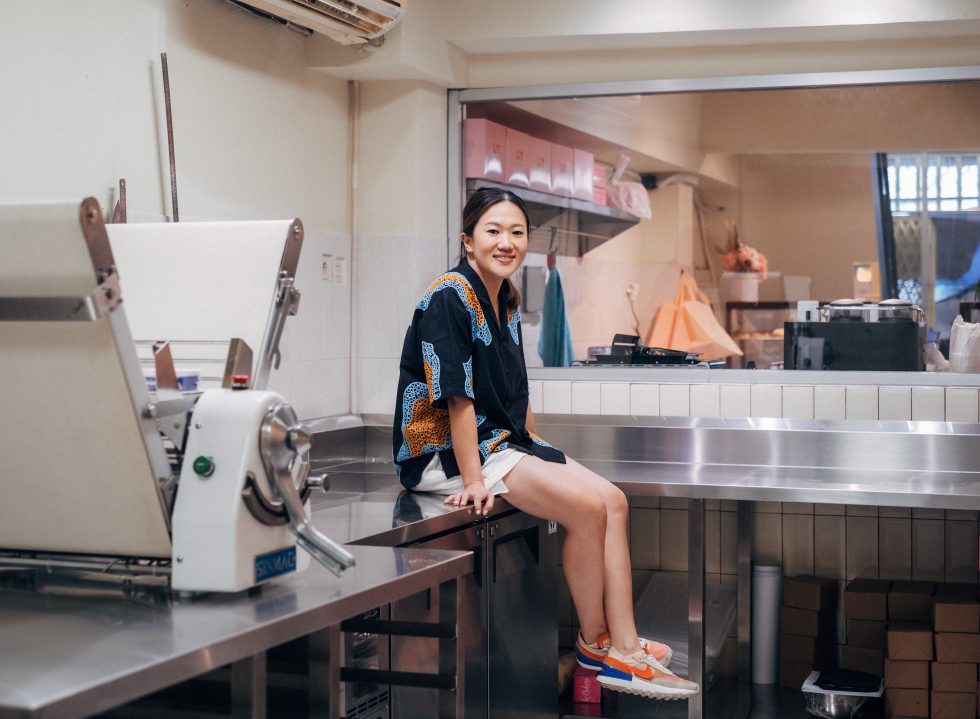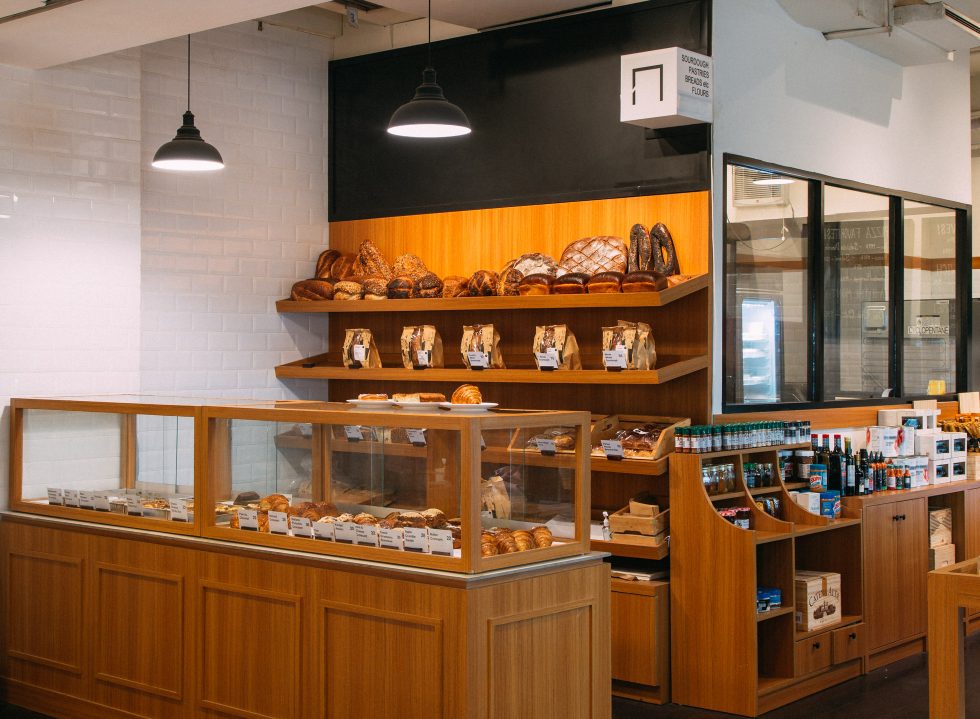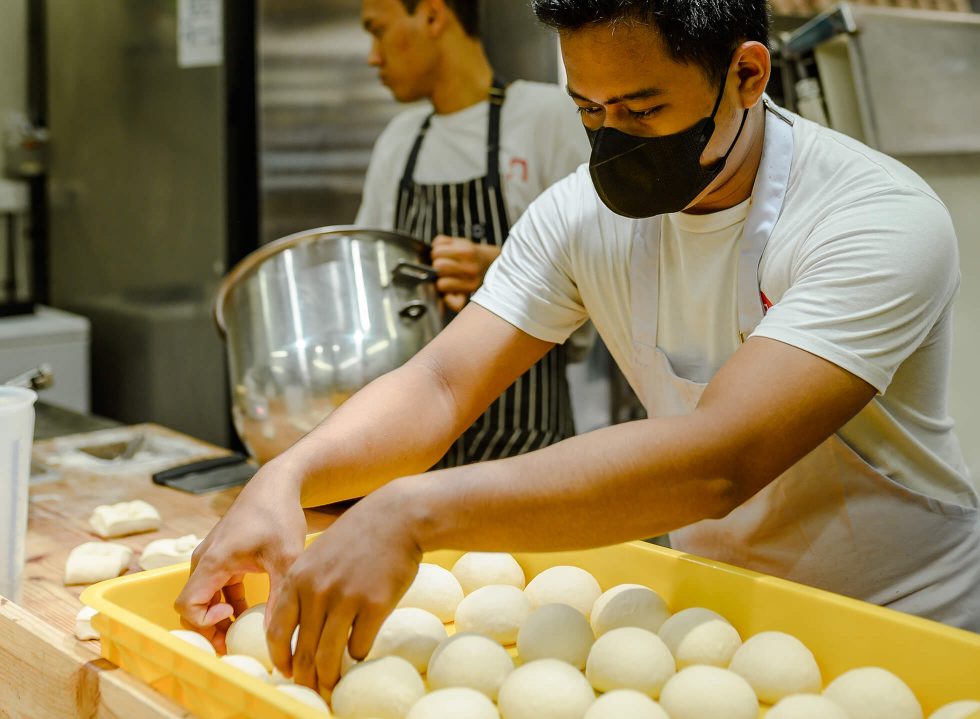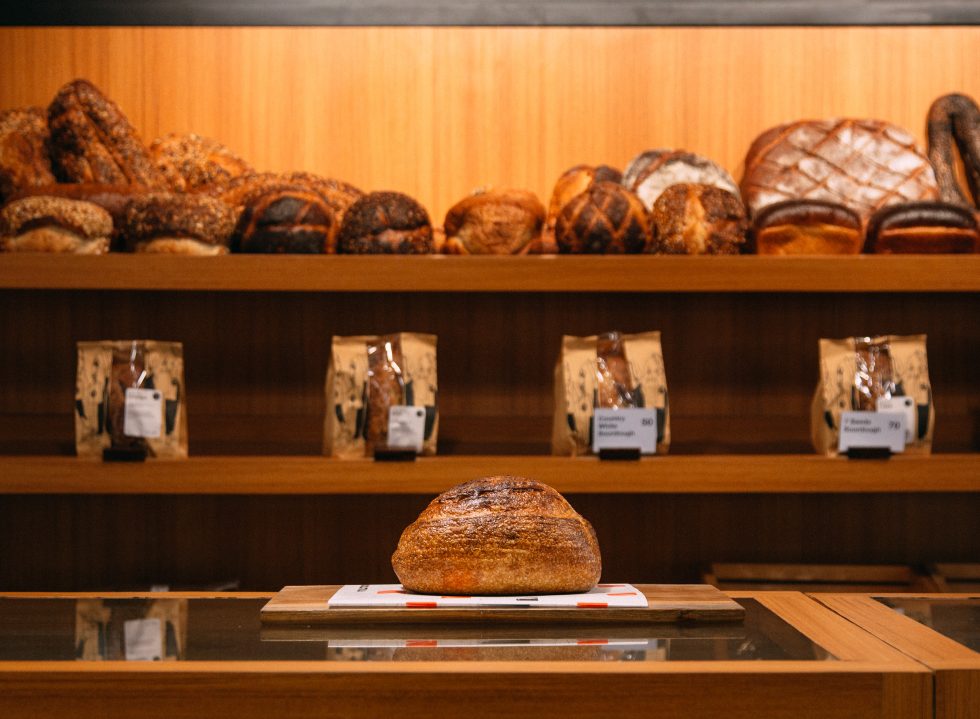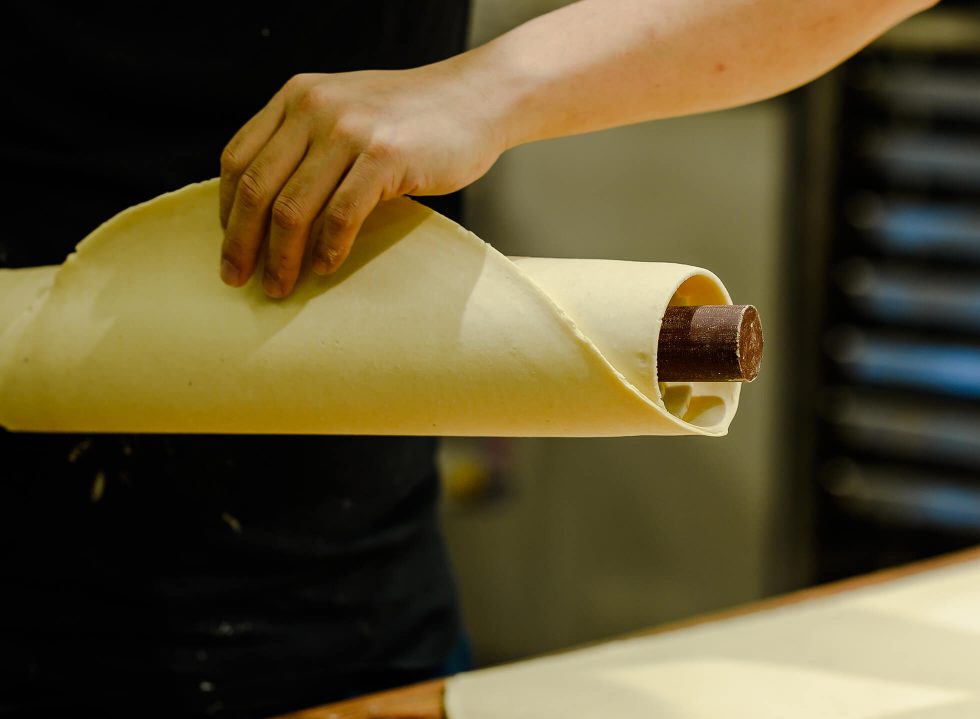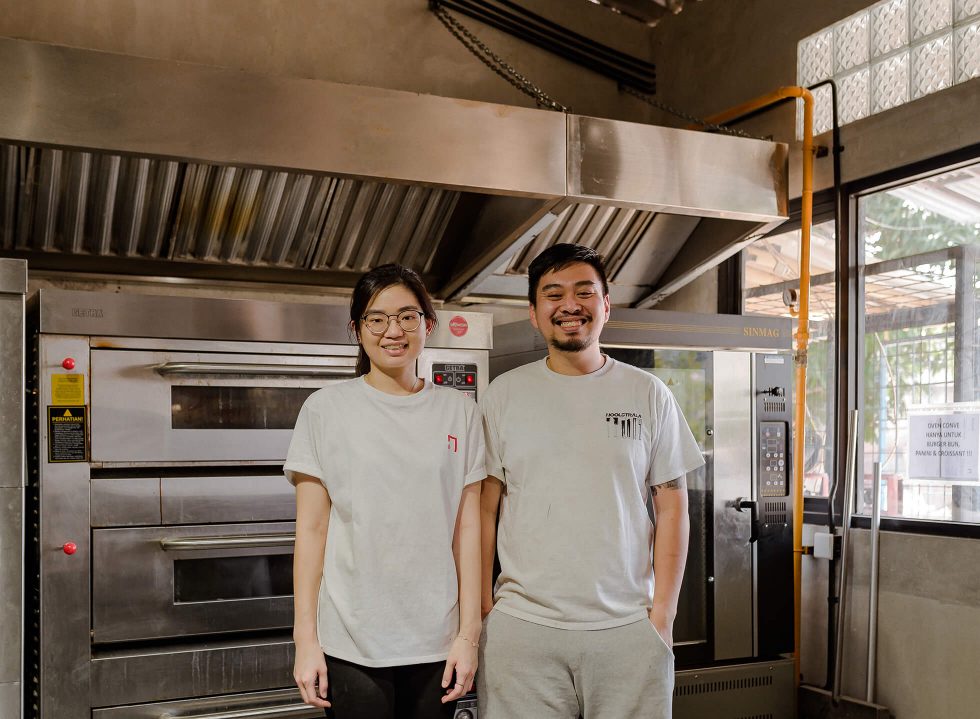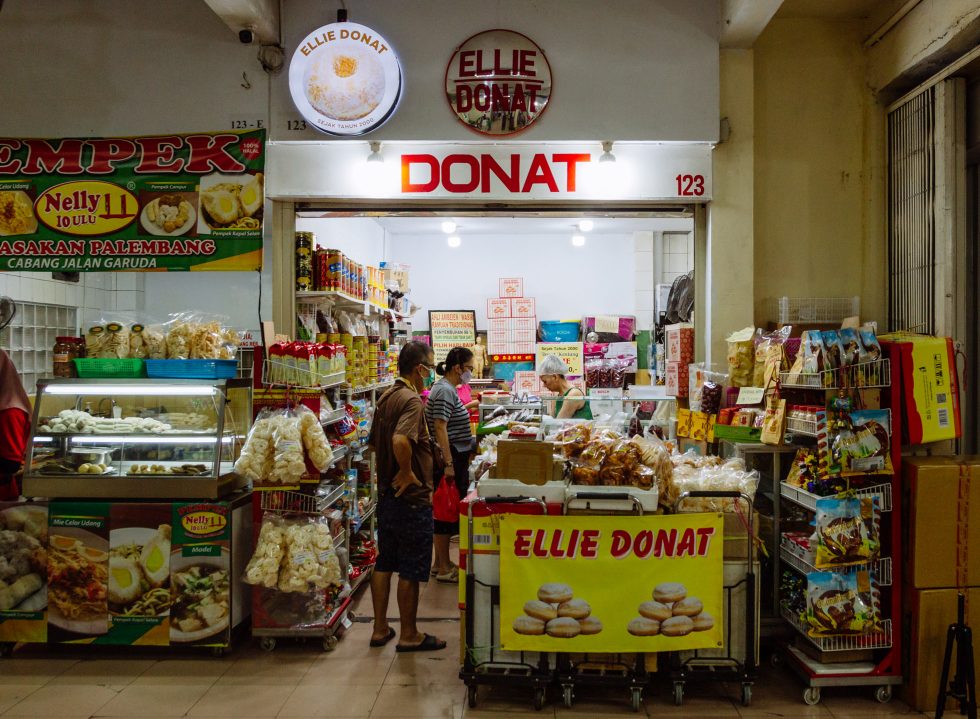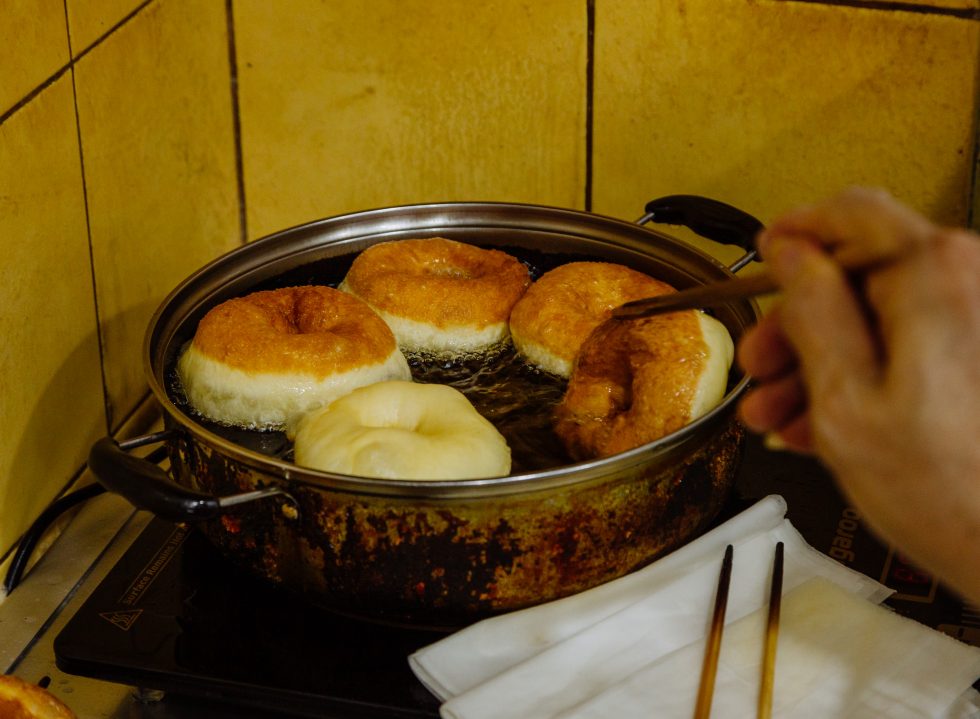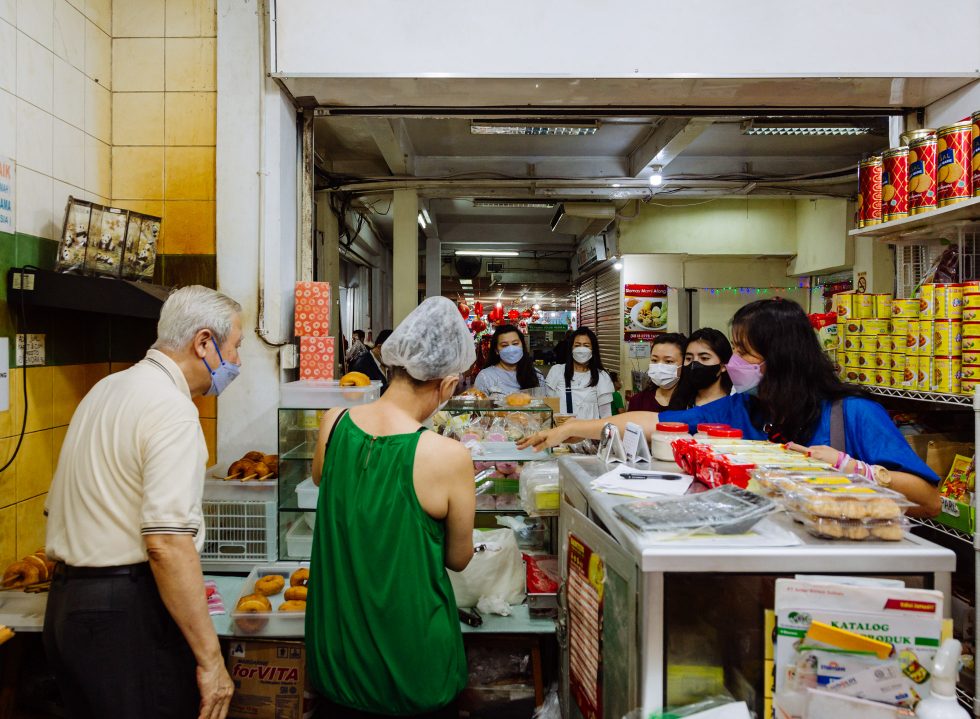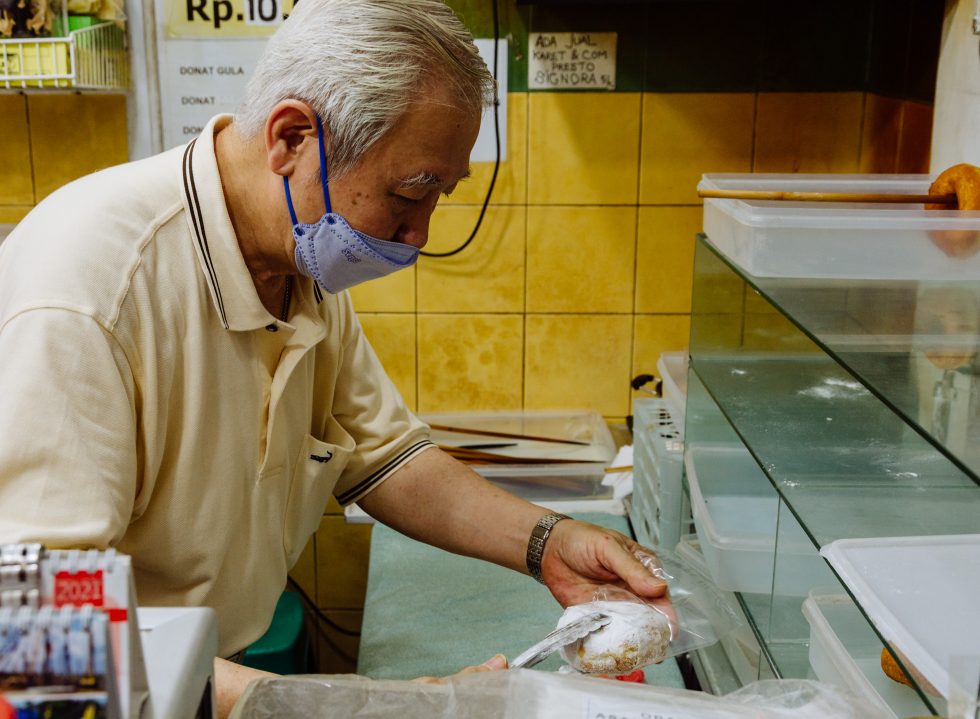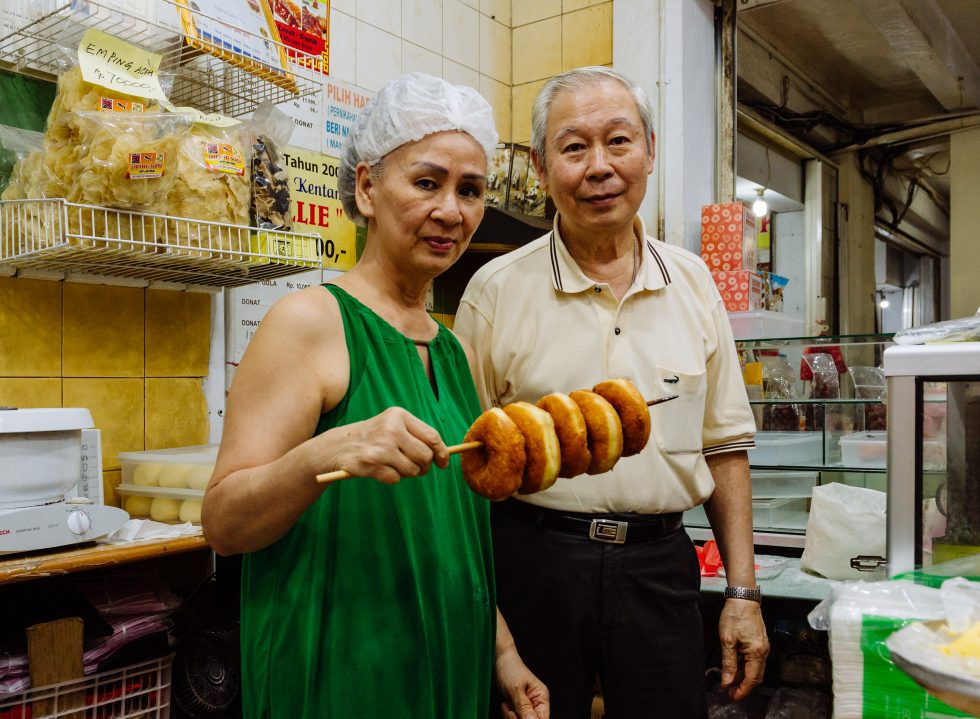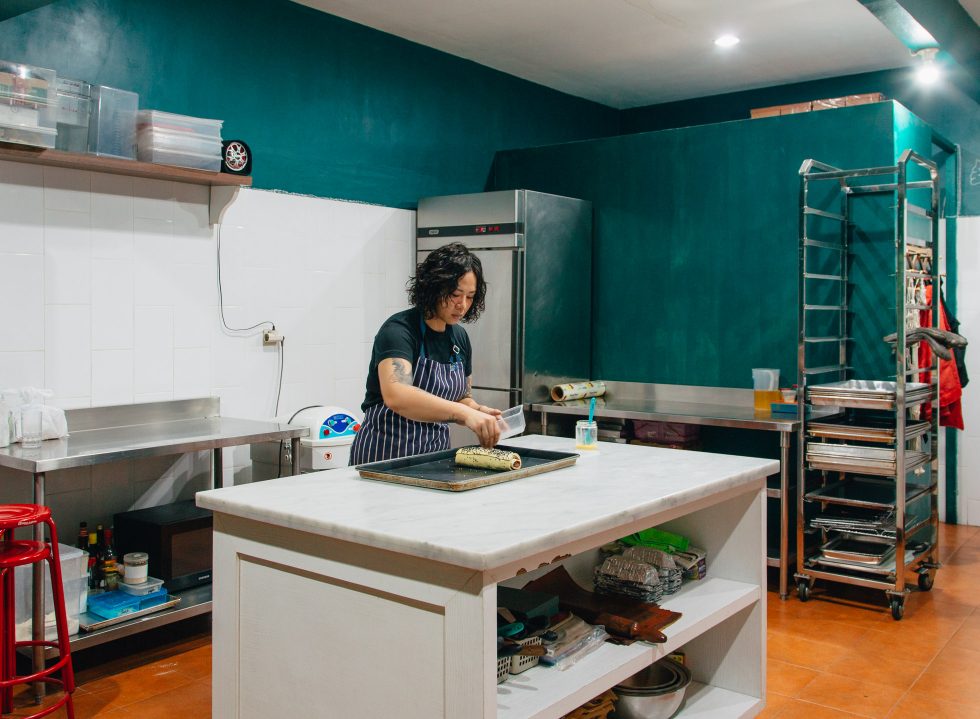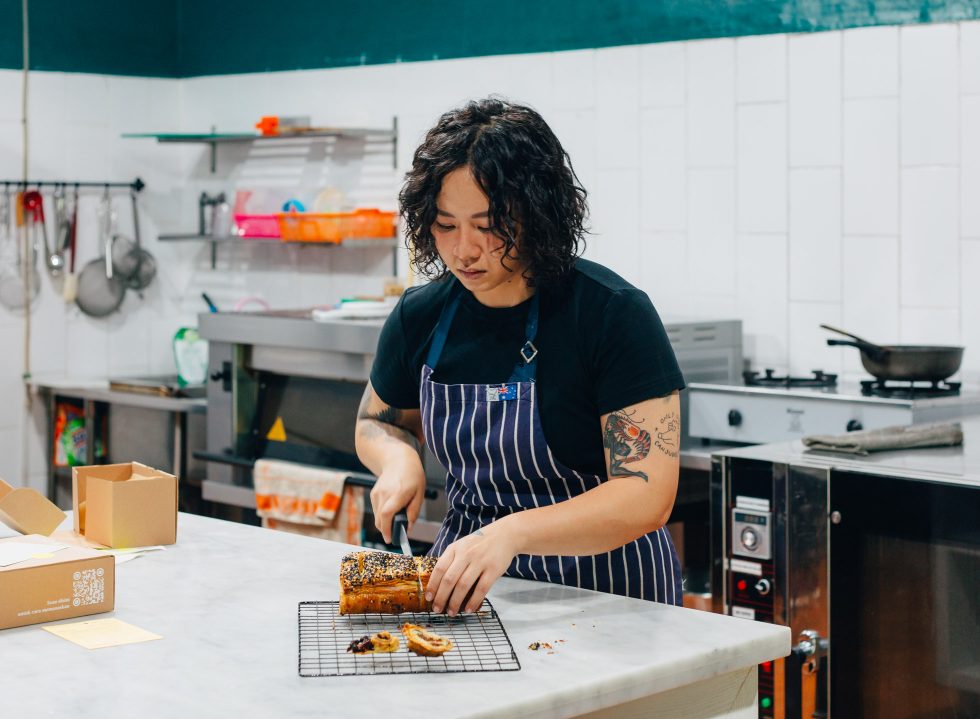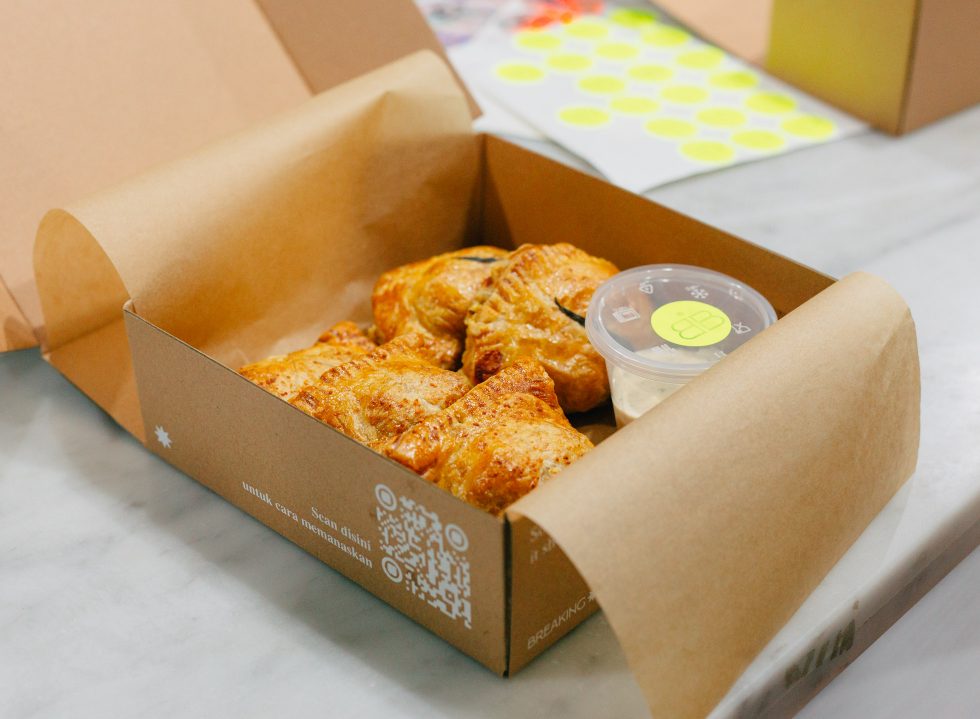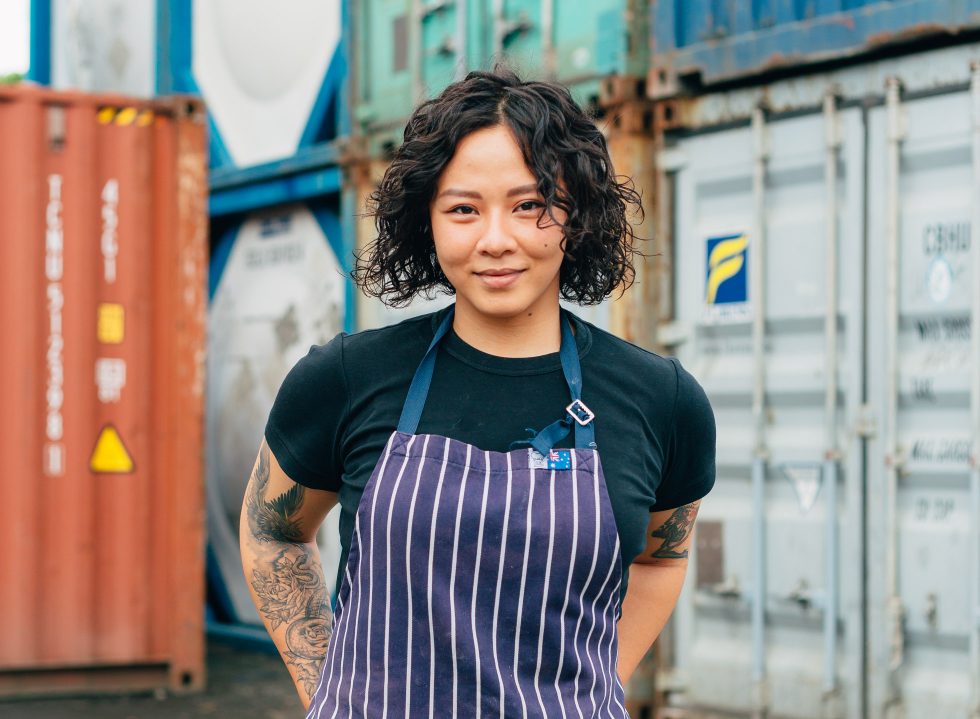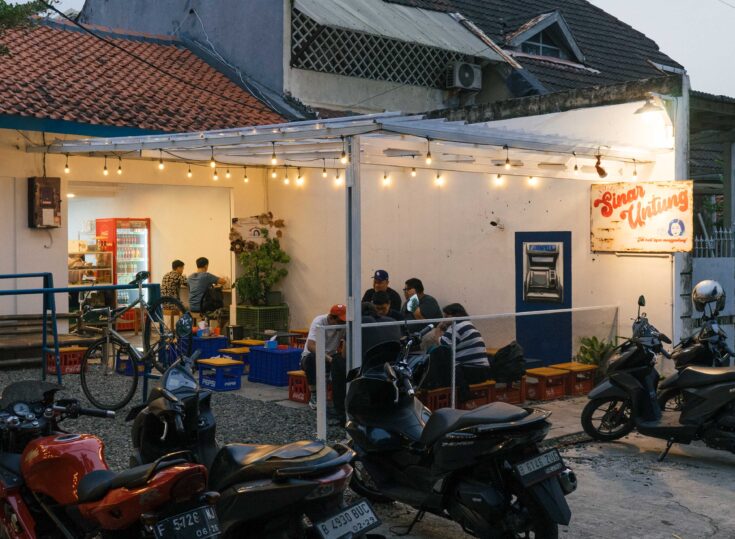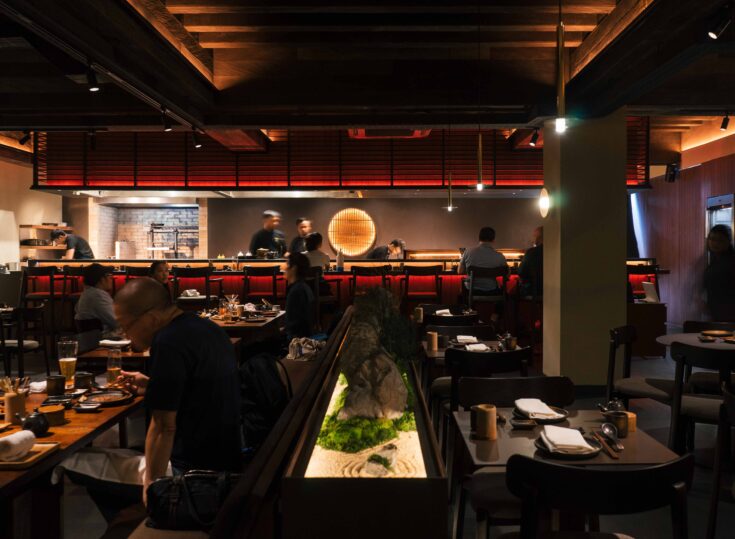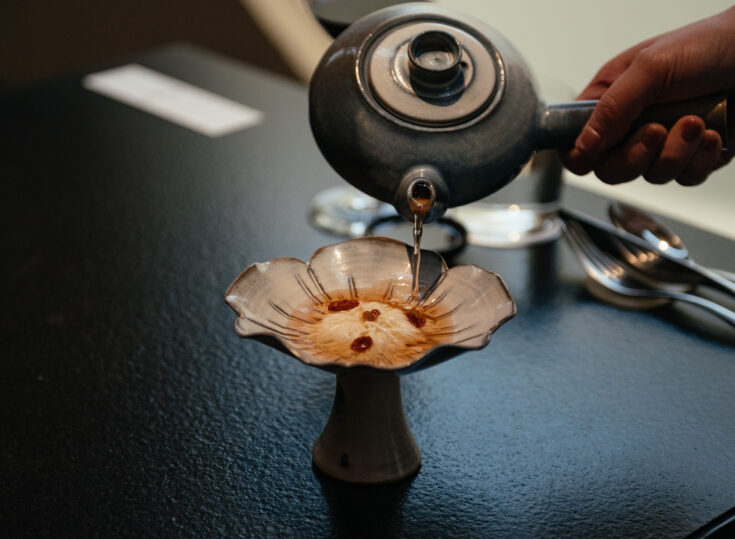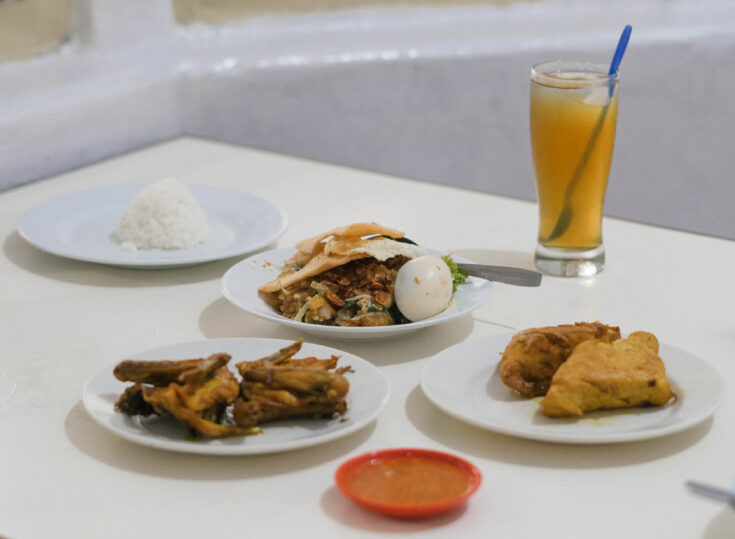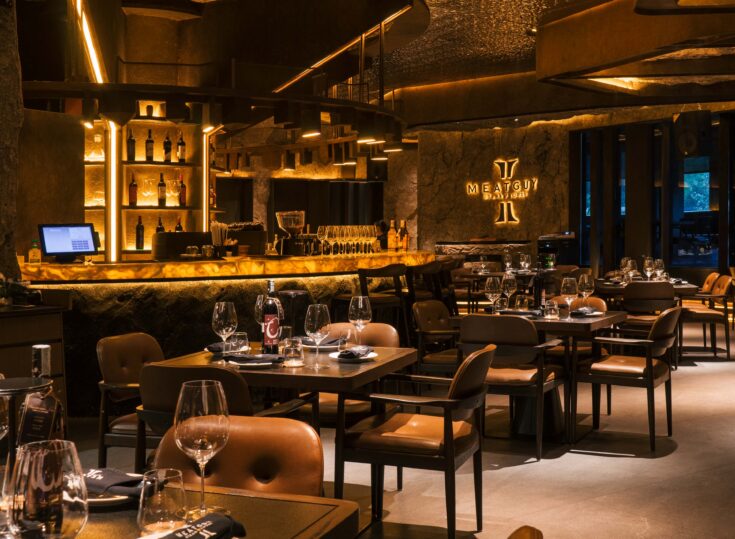Many people (re)discovered a love for baking during the pandemic. Some of them also took a step forward by putting on their creative and entrepreneur hats—and switching them simultaneously—to pursue it as a business.
This reads true for chef-turned-baker Kade Chandra, who has had to be the “baker, photographer, graphic designer and the driver who sends off the orders” all at once. Nool/Strala, which he started with partner-slash-pastry chef Laura Hidayat in 2020, is one of the many independent home business bakeries born during the lockdown.
Especially intrigued by sourdough, Kade, who had to close down operations of his two restaurants, started to make his starter of yeast and flour, gave some loaves to friends and family as freebies, and eventually sold them online through pre-order. “From sourdough bread, we break it down to focaccia and baguettes. Then, we saw that the market was asking for croissants and other pastries, so we made them as well,” said Kade of his growing menu.
“One of the most valuable lessons we learned from running this business is to be persistent, work hard and work smart.” – Kade Chandra of Nool/Strala
Today, Kade runs his bread factory in West Jakarta with a growing team of ten and opened two shops—he calls them live outlets—in Dharmawangsa and Pondok Indah. It’s the desired textbook success for any businesses that start from nil, especially those kicked off during the pandemic.
In 2020, bakery products were on the rise in Southeast Asia. Among these, artisanal cakes saw a boom, especially in Indonesia where the artisan bakery sector is growing. Online food delivery also plays a big part in the rise of home bakeries, and with bakeries being one of the ten businesses that showed potential amidst the pandemic last year, the future seems to be bright and promising.
Yet as bakers turn to perfecting quality instead of doing things in big volume, while also thinking about the unpredictable nature of the pandemic, how would independent bakeries hold up?
A sweet success?
Joscelyn Tan, the founder of the online bakery Breaking Bread, conceded that it’s been a fair share of ups and downs. “We go from working at two in the morning to seven at night during our busiest period last year to experiencing fluctuating orders throughout our slow months,” said Joscelyn, who started her business in 2020. Her first creation was the ube brioche with variations of cinnamon rolls and pesto cheese made in her home kitchen.
“It started with my curiosity to make bread that has a great bite and body to it, yet is fluffy and chewy at the same time. Turns out ube is the magic ingredient,” said the Le Cordon Bleu graduate who majored in cuisine. “I finally had the time to focus on what I want to do with myself. Without the pandemic, who knows? Breaking Bread wouldn’t be here. Maybe I wouldn’t have the guts to pursue my own bakery.”
When she started, Joscelyn was still working as an executive chef at GIOI, thus she was only taking pre-orders on Saturdays. It changed to three times a week due to growing requests and last year, she resigned from her full-time job to focus on developing the business. She now has a compact kitchen in North Jakarta where she works with a small team of three and a growing menu that includes a variety of savoury puffs and pies.
“Without the pandemic, who knows? Breaking Bread wouldn’t be here.” – Joscelyn Tan of Breaking Bread
Joscelyn also pointed out that during her busiest period, like Christmas, she can sell up to 80 boxes per day; today, selling 15 boxes a day is already a good number. This wavering pace is also felt by Lalita Setiandi, a pastry chef and owner of LIT Bakehouse, a bakery business that she started online in 2020. “On a good day, 50 transactions. On a slow day, zero,” recounted Lalita. “I was not expecting things to be extremely fluctuating but I was not surprised either considering that I am new to the market.”
Having worked as a pastry chef de partie at Bennelong Restaurant in Sydney for three years, Lalita knew she’s always wanted to open a shop of her own, and that was the plan following her return to Jakarta in 2019. The first two years of the pandemic halted that dream, but she filled the gap by cooking up tiramisu, brown butter doughnuts, financier cakes, flavourful croissants, or any pastry she was inspired to make that day.
She had built a kitchen by then, in a building located inside an alley of Jalan Pancoran in Glodok, which her father entrusted her. This year, she plucked up the courage to open LIT’s first pastry shop-flash-café in the same building and neighbourhood she grew up in. “I’ve always wanted to sell pastries in Chinatown, but I don’t know if people would actually appreciate my product. But at the same time, if I don’t try, I won’t know. So even if I lose, I’ve won by trying, right?”
The cost of being artisanal
There’s grit in waking up as early as four in the morning to prepare all the orders so they can be delivered on time, and there’s a creed in making sure everything—from the ingredients used to the method of cooking—is done with an artisanal approach. Although the definition varies between bakers, the shared principle is that everything is made fresh in-house and unbending when using quality ingredients.
This attitude resonates with Lalita, who still produces daily in a small batch and uses only premium quality for the basic ingredients, like her use of French butter and Italian mascarpone. “It’s also about doing something that makes me happy where I can show my creativity and idealism,” said the Le Cordon Bleu alumna.
On a recent Instagram post, Lalita informed followers of LIT that she had to adjust the prices of her baked goods to adapt to the rising food and wage costs while still maintaining the quality she had set, a decision made with respect to her craft, her team and wanting to serve the best. She also offered her insight on the many independent bakeries popping up in the past two years, and what this should mean going forward.
“If we want to create something, do it right and give our best.” – Lalita Setiandi of LIT Bakehouse
“It’s amazing that the pastry and bread industry is growing so quickly these days—the demand is actually there. But at the same time, when you sell something, you are in a way informing the public, so it’s our responsibility to do it properly or else we’re just hurting the market,” noted Lalita. “Bagels should be chewy, not soft like a burger. Sourdough is slightly sour, that’s normal. If we want to create something, do it right and give our best.”
Kade and his team also affirm the same principle when it comes to his products. Whether it is the batch of sourdoughs and pastries stored in Nool/Strala’s outlets or the ones made at their bread factory, Kade always makes sure that everything is made on the day to ensure quality, even at the expense of shorter shelf life.
Especially for sourdoughs, “if we display it at 9 am, I think the bread would already taste different by 4 pm since we don’t use additives. So yes, there’s always a possibility of waste from the leftovers. But if you’re not going to serve your best food, what’s the point of serving it?”
Made to last
What about the small businesses working without social media—a tool aforementioned brands duly utilise—who instead rely on traditional word-of-mouth? Left and right, secluded in markets and neighbourhoods, businesses from eateries and shops to food stalls have stood the test of time and shifting market. But there’s a sense that they want to stay unchanging, sticking to ways they know how to run the business.
“Imagine if all these shops have their own Instagram where they can tell their history and story!” gushed Lalita on the many small and longtime businesses that she encounters daily in the Glodok neighbourhood. One of them is Ellie Donat, a doughnut shop inside Gedung Chandra. While its recent virality can be credited to TikTok and Instagram, to surrounding residents and loyal customers, owner Ellie Wong and husband Sukwan Dinata have been quietly serving their potato doughnuts for over 20 years.
The couple, originally from Medan, had started the business by selling kitchen equipment; the potato doughnuts powdered in sugar—colloquially known as donat kampung—were first made as a tester food. “The next day, people were asking for the doughnuts. So, my mother started selling them, along with roti sobek,” told Julie Pascalina, Ellie’s third daughter, over Instagram’s direct message. From starting at IDR 2,000 to now IDR 10,000 each, today, many are buying them for out-of-towners as well.
Ellie, 57, wakes up every day at 3.30 am to prepare the dough as it takes time to prove it. Then she takes all the ingredients to her shop which she opens at 10 am; Ellie would mould the dough by hand and douse each in a bag of icing sugar after Sukwan, 69, fries them. “Until now, we only use a mixer and a fryer—no machine,” said the shy and reserved Ellie. “I always ask my customers before they order if they’re willing to wait because only my husband and I are manning the station.” For acquainted customers, they know to wait for at least 30 minutes to two hours before they pick up their orders.
“Unless the building is closed, the shop opens every day.” – Julie Pascalina, daughter of Ellie Wong of Ellie Donat
“We used to be a stall located at the centre of the mall. But when the pandemic hit and many shut down their businesses, we were moved to a small square in the corner,” explained Ellie. “Of course, we were impacted. Sales dropped and we used to close earlier than usual. But it has now picked up, as we were featured a few times on social media.” When asked if she had plans to open an account to promote the business, “I can’t even reply to the requests on WhatsApp, let alone have a sosmed,” said Ellie, indicating that she was simply too busy to attend to it.
Her daughter, Julie, on the other hand, was more excited to try. “Maybe in the future, we can set it up. Because thanks to food bloggers and online reviewers, a lot of people got to know about Ellie Donat.” But for her, the credit still goes to the perseverance of her parents who built the business from scratch with diligence. “Unless the building is closed, the shop opens every day. My mother is also willing to improve as she keeps playing with the recipe and ingredients so they taste better.”
It’s this strength of character that today’s young bakers and business owners also wish to model to ensure that this trend of rising businesses is not just a phase. “We want this rise of independent bakeries to withstand the test of time, just like the old, legendary bakeries out there,” said Joscelyn. “We want to see sustainable bakery businesses that grow and strive in their own ways and capacity. Something that can be passed down through generations.”
“Bigger doesn’t mean better, smaller doesn’t mean worse,” said Kade. “One of the most valuable lessons we learned from running this business is to be persistent, work hard and work smart. Tough times don’t last, tough people do.”
